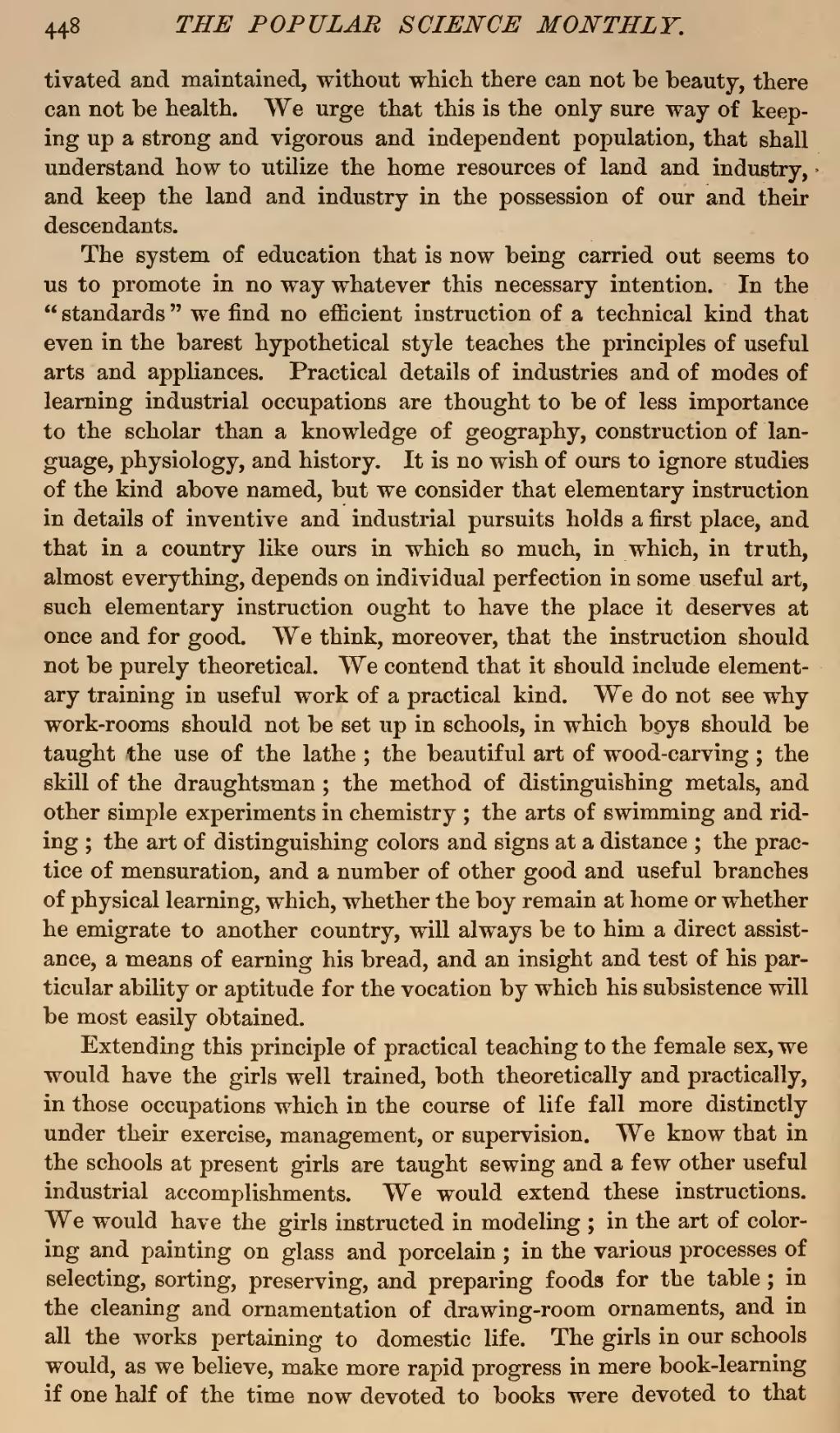tivated and maintained, without which there can not be beauty, there can not be health. We urge that this is the only sure way of keeping up a strong and vigorous and independent population, that shall understand how to utilize the home resources of land and industry, and keep the land and industry in the possession of our and their descendants.
The system of education that is now being carried out seems to us to promote in no way whatever this necessary intention. In the "standards" we find no efficient instruction of a technical kind that even in the barest hypothetical style teaches the principles of useful arts and appliances. Practical details of industries and of modes of learning industrial occupations are thought to be of less importance to the scholar than a knowledge of geography, construction of language, physiology, and history. It is no wish of ours to ignore studies of the kind above named, but we consider that elementary instruction in details of inventive and industrial pursuits holds a first place, and that in a country like ours in which so much, in which, in truth, almost everything, depends on individual perfection in some useful art, such elementary instruction ought to have the place it deserves at once and for good. We think, moreover, that the instruction should not be purely theoretical. We contend that it should include elementary training in useful work of a practical kind. We do not see why work-rooms should not be set up in schools, in which boys should be taught the use of the lathe; the beautiful art of wood-carving; the skill of the draughtsman; the method of distinguishing metals, and other simple experiments in chemistry; the arts of swimming and riding; the art of distinguishing colors and signs at a distance; the practice of mensuration, and a number of other good and useful branches of physical learning, which, whether the boy remain at home or whether he emigrate to another country, will always be to him a direct assistance, a means of earning his bread, and an insight and test of his particular ability or aptitude for the vocation by which his subsistence will be most easily obtained.
Extending this principle of practical teaching to the female sex, we would have the girls well trained, both theoretically and practically, in those occupations which in the course of life fall more distinctly under their exercise, management, or supervision. We know that in the schools at present girls are taught sewing and a few other useful industrial accomplishments. We would extend these instructions. We would have the girls instructed in modeling; in the art of coloring and painting on glass and porcelain; in the various processes of selecting, sorting, preserving, and preparing foods for the table; in the cleaning and ornamentation of drawing-room ornaments, and in all the works pertaining to domestic life. The girls in our schools would, as we believe, make more rapid progress in mere book-learning if one half of the time now devoted to books were devoted to that

